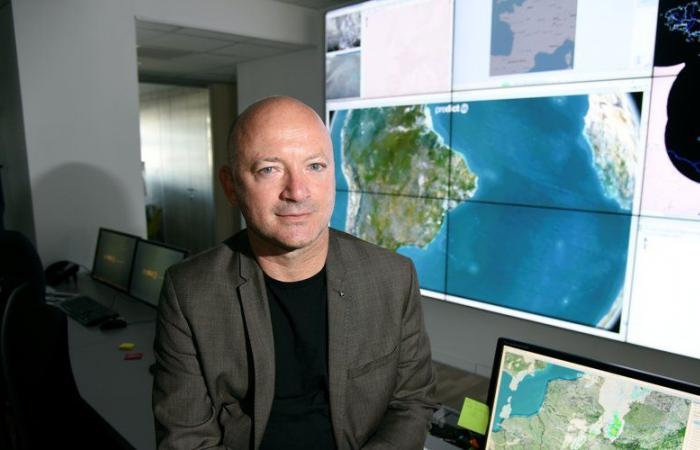
The head of Predict, which supports communities facing hydrometeorological risk, discusses the tragic floods in the Valencia region.
Do you have customers in Valencia that you were able to notify in time?
Among our partners, we have manufacturers who have sites all over the world, including a car manufacturer located in the south of Valencia. We warned them on the same principle as what we do in France. We deployed the communication protocol on Monday to invite them to be vigilant. Monday evening we sent them the confirmation. Tuesday morning we sent them a safety message in view of the V-shaped cell which was set up with stationary rain. We spoke to the group leader on the phone to warn him of the seriousness of the episode. They told staff not to go home and reserved hotel rooms to prevent employees from driving. For our teams, the frustration is great having followed up, passed the message to some and seen the consequences. It's heavy to carry.
The alert system is called into question after the heavy toll in Spain. Is there an equivalent of Predict out there?
Weather services are very relevant. They had detected the episode and raised the red alert. The emergency services are also of a very good standard. There is no equivalent to Predict. In France, the security modernization law in 2004 with the creation of municipal safeguarding plans and citizen awareness, mentalities have evolved. There are always those who try to cross a ford, but the culture of risk has developed. It is not necessarily the same everywhere in the world. Predict is based on an early warning system which is based on four pillars: knowing the flood zoning, preparing by looking at whether a bridge or a school needs to be closed, monitoring the situation in real time then disseminating the information. Between September and October, insurers sent 20 million SMS messages to broadcast safety messages to their policyholders.
How do you explain that French people arrived at certain sites even before relief was provided?
It is not my role to comment. You have to stay humble. We are participating in a European project in which we work with the civil security services of neighboring countries for four years to share our practices. We will provide feedback. It is important not to react quickly because people are still emotional. We must coldly calculate what happened, it is still too early to draw conclusions.
The provisional report shows 219 deaths, wouldn't that be possible in France?
The last biggest episode in France was storm Alex in the Nice hinterland, there were 20 people missing. It had fallen 600 mm in 8 hours, it is a meteorological event superior to Valencia. In the feedback, we see that all the municipalities have brought 3,000 people to safety. Evacuations of nursing homes, housing estates, parking lots, bridge closures. We must highlight the work of mayors and emergency services. I'm not saying that a catastrophe is not possible, but by working on this complex chain with all the players we minimize the consequences of this type of event.
The fall was very rainy. Should we still fear risky episodes?
Our anticyclonic shield still holds until next weekend. When the Mediterranean is warm, this type of episode can happen a little later. It happened in December 2003 with the flooding of the Rhône. We must not let our guard down.
France





